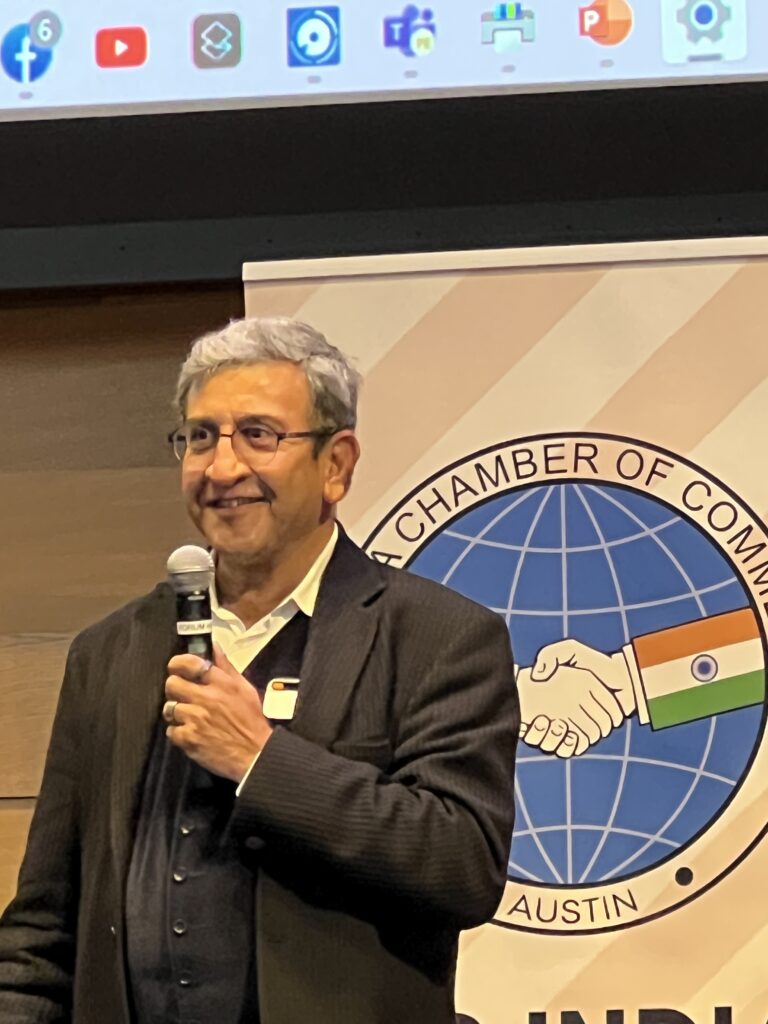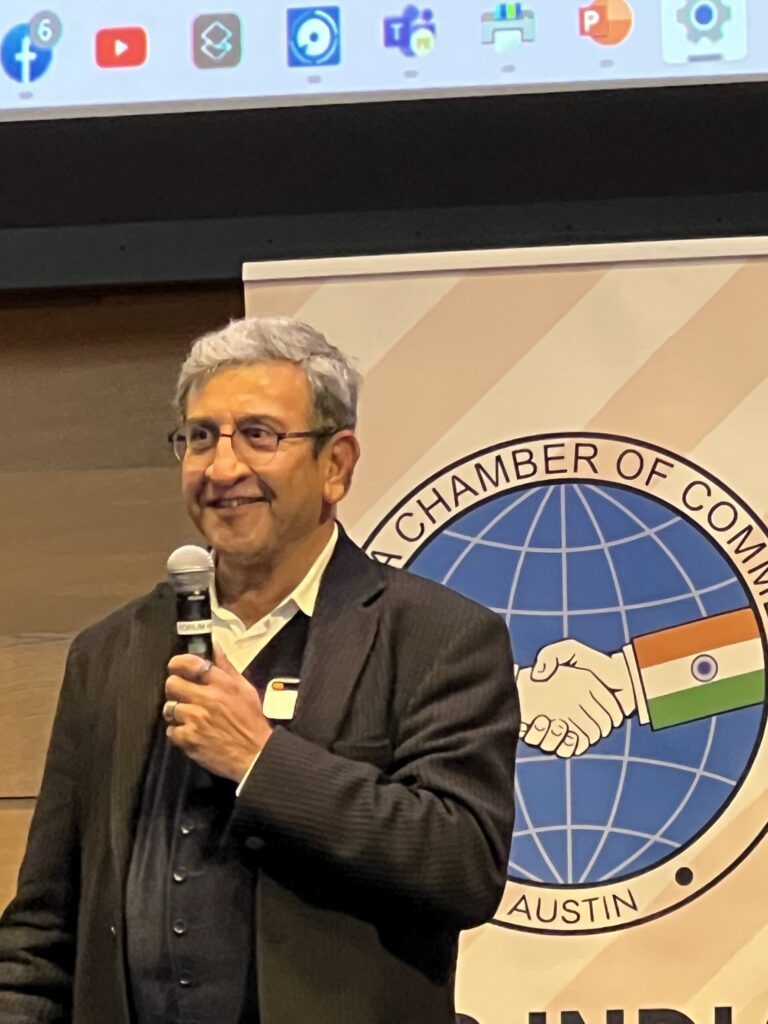
Pankaj Kedia, a renowned Silicon Valley technology executive, gave the keynote address at the U.S. India Chamber of Commerce and Austin AI Valley talk on AI at the Austin Central Library Tuesday night.
Kedia is currently focused on shaping, accelerating, and bringing the benefits of Artificial Intelligence (AI) to society at large as an investor, advisor, and thought leader. Previously, he was an accomplished tech intrapreneur, having incubated a series of new businesses at Intel and Qualcomm.
Generative AI is expected to add between $2.6 Trillion to $4.4 Trillion by 2030 in additional value to the economy due to increased productivity across all sectors from high tech, retail and banking to media, entertainment and agriculture, according to one of Kedia’s slides, citing data from McKinsey.
Already, the “magnificient seven” as Kedia dubs them, the top AI companies in the U.S. including Nvidia, Apple, Microsoft, Google, Amazon, Meta and Tesla, have seen a $10 Trillion increase in market capitalization since the introduction of Chat GPT in November of 2022. Today, those top seven companies are now worth $17.7 Trillion. That’s what Kedia calls the “AI premium.”
And even the introduction of China’s DeepSeek in the past few weeks is not going to change the momentum of Slicon Valley AI startups and the established players, Kedia said. It shook things up, but the head of DeepSeek is Liang Wenfeng who is a hedge fund manager and co-founder of High-Flyer who made a lot of money by shorting Nvidia’s stock when DeepSeek hit the market, Kedia said.
1. AI is Moving Faster Than the Internet
- Kedia emphasized how AI’s progress is outpacing even the internet and mobile technologies. Just like the internet transformed industries, AI is set to do the same but at an even quicker pace.
2. AI is Global, with Widespread Adoption
- AI is not limited to a few countries or industries. It’s being deployed globally, from Mexico to India, and is transforming sectors like healthcare, sports, fitness, and finance. AI is truly global with more than 100 countries active in AI research and development efforts, Kedia said.
3. The Role of Private Companies in AI Development
- Some of the biggest leaps in AI are happening in the private sector, with companies achieving valuations that are magnitudes larger than those of past internet-era companies. The financial backing and innovation in the private market are fueling AI’s rapid growth.
4. Investing in AI and Startups
- Kedia shared his experiences as an investor and emphasized the importance of identifying the right opportunities early. The key to success is finding businesses that use AI to address real-world problems, even at the earliest stages of development.
5. AI’s Impact on Existing Industries
- AI is reshaping industries, and it’s critical for businesses to integrate AI technologies to remain competitive. Companies in healthcare, for example, have already started deploying AI-driven diagnostics and management tools, which is creating efficiencies and improving outcomes. For example, Kedia cites Eastman, a global specialty materials company with $10 billion in revenue, based in Kingsport, Tenn., has saved $200 million in 2023 in its manufacturing processes by using an AI platform to optimize heat transfer fluid management.
6. The Importance of Reinforcement Learning
- Pankaj touched on how reinforcement learning and optimization techniques are reshaping industries, with a particular focus on how AI models are becoming more efficient by using smaller parameters. This is leading to more sustainable and effective AI solutions.
7. AI’s Potential in Healthcare
- One of the most impactful applications of AI is in healthcare. AI is not only improving diagnostics but also revolutionizing personalized treatments, early disease detection, and patient care management.
8. Challenges with AI Adoption
- While AI’s potential is enormous, there are significant challenges around its deployment, including ethical concerns, data privacy, and ensuring that AI models are designed to avoid biases. These issues need to be addressed for AI to be deployed safely and responsibly.
Overall, Kedia thinks we are in the AI era and that it is bigger and bolder than previous tech revolutions. And AI is going to transform every sector.


